Another former staffer has dirt to spill on President Donald Trump. And the president again promises legal action, claiming the staffer violated a confidentiality agreement. While Trump is notorious for threatening lawsuits that never materialize, and his administration’s non-disclosure agreements have been deemed potentially unenforceable and illegal, could this be the time that Trump actually sues, and the alleged NDA is enforced?
Here’s a look.
Vipers’ Nest
“Team of Vipers: My 500 Extraordinary Days in the Trump White House” was written by former Trump administration communications aide Cliff Sims, and released this week. Trump responded, as he often does, on Twitter:
A low level staffer that I hardly knew named Cliff Sims wrote yet another boring book based on made up stories and fiction. He pretended to be an insider when in fact he was nothing more than a gofer. He signed a non-disclosure agreement. He is a mess!
— Donald J. Trump (@realDonaldTrump) January 29, 2019
Despite the dissonance between claiming that a book is both “based on made up stories and fiction” and violates a non-disclosure agreement, Michael Glassner, chief operating officer of Trump’s re-election campaign, confirmed the campaign was “preparing to file suit against Cliff Sims for violating” an NDA. (Sims, or his part, does not recall whether he signed an NDA, and responded to Trump’s tweet in real-time while promoting the book, “Nice. There it is.”
Free Speech Test
So what of Sims’s potential legal liability? National security attorney Brad Moss believes that, while the non-disclosure agreement could apply to information Sims gleaned before Trump’s inauguration, it would likely be unenforceable when it comes to his time working in the White House. “If the campaign is trying to impose their NDA upon Sims for disclosures tied to his time in the White House, they’re going to run into the brick wall of established precedent on the subject,” Moss told Law & Crime. “They would in effect be arguing that the court should allow a president’s campaign to censor a former federal employee in a way that the government is barred from doing. Good luck with that argument.”
As a general rule, government employees (and former employees) who speak out about matters of public concern, government corruption, or gross misconduct are protected from retaliation by the First Amendment, so long as the speech was not pursuant to their job duties and did not cause disruption in the workplace.
So, if Trump, in fact, follows through on his threat to sue Sims, he could be facing an uphill legal battle.
Related Resources:
- Trump Blasts Ex-Staffer, Campaign Threatens Lawsuit Over Tell-All Book (NBC News)
- Top 3 Legal Issues for Trump’s ‘Fire and Fury’ Defamation Claim (FindLaw’s Injured)
- Is the President Immune From Defamation Lawsuits? (FindLaw’s Injured)
- Is Your Confidentiality Agreement Legal? (FindLaw’s Law and Daily Life)



